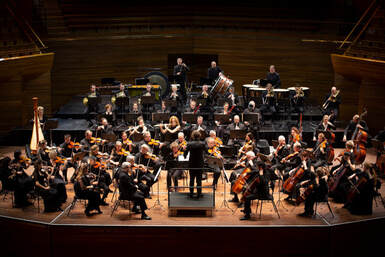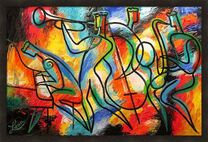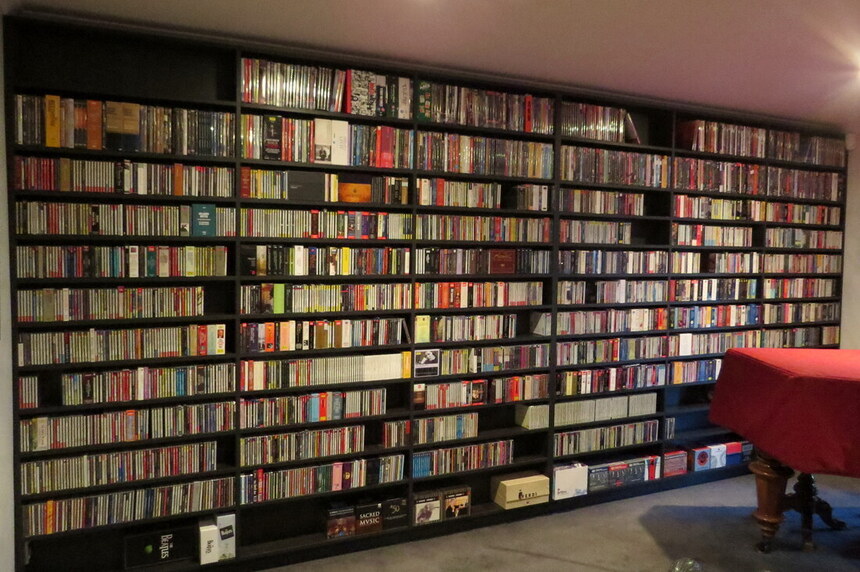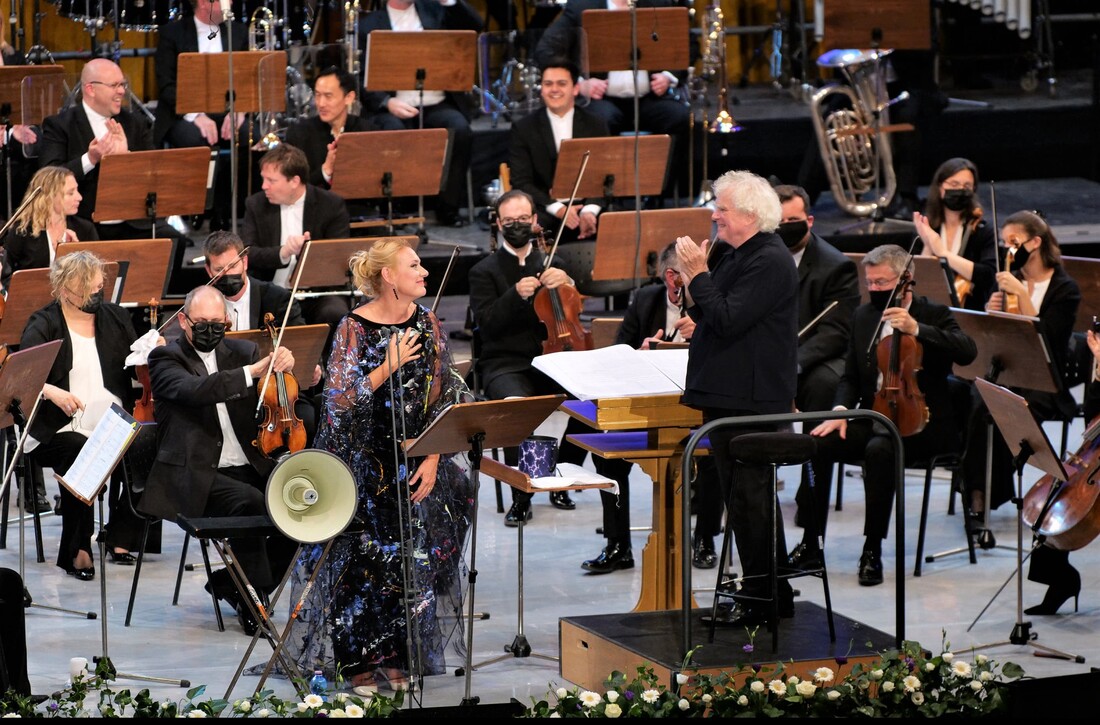 The anticipated excitement at seeing in the New Year proved so daunting that we decided to give it a miss in the hope that, even so, the following day would yet prove to be the first day of 2022 – and so it came to pass . . . The day started early because, for me, 1 January 2022 began with the Berlin Philharmonic’s live stream of their 5.00pm New Year’s Eve Concert (5.00am on 1 January NZ time) on the Digital Concert Hall, and ended with the Vienna Philharmonic’s New Year’s Day Concert at 11.15pm NZ time (ending at 1.45am in the morning of 2 January). In between there was a lovely Christchurch summer day, which we made the most of with a walk over the hill, from our house at the bottom, to the top of Huntsbury, overlooking the Rapaki walking tracks on the next hill, and across to the estuary and sparkling Pacific Ocean; then down and home by a different route. Preparing dinner took up much of the afternoon for a lively New Year catch-up with friends in the evening before settling in to watch that keenly anticipated Vienna New Year Concert, where I couldn’t help noticing Christchurch-born violinist Ben Morrison on the second desk of the 1st Violins. Also of interest, at each end of this day, was the observation that the two well-known Ottensamer brothers were the principal clarinets in each of these two New Year concerts: Andreas in Berlin and Daniel in Vienna, where their father had also once been principal clarinet. All of this was ‘live’ – exactly as it was happening in Europe, on the opposite side of the world in the wintery Northern Hemisphere! I couldn’t help thinking that, despite the travel restrictions of the current pandemic, we still have the world at our fingertips and, musically speaking, in such superb sonic and visual immediacy. At the end of the previous edition of Troubleshooter I included a picture of my CD collection; every disc chosen with care after reading reviews, or hearing broadcast performances, or familiarity with the musicians’ previous performances, or recommendations from others. The batches of CDs that I buy always comprise a shortlist, reduced from a significantly longer wish list. The collection has continued to grow from the mid 1980s to early 2020 (not forgetting the hundreds of vinyl records accumulated before that), so that Ursula suddenly wondered if it was time to stop! She pointed out that the capacity of our wall of purpose-built shelving would soon prove finite; not to mention that she’d already begun to fill some of the small remaining spaces with items from her own impressive collection of equally-valued and carefully-and expertly-chosen ceramic pottery. WHAT TO DO? I began to consider getting to grips with network and streaming technology. A visit to my favourite local audio showroom, as soon as lockdown restrictions allowed, quickly offered solutions. A home internet and network streamer connected to my sound system has proved simple and ideal. This particular unit has both hard drive storage and streaming capability, so the occasional download purchase (as opposed to acquiring a physical CD) along with a subscription to a high-quality streaming service (costing roughly the equivalent of one CD per month) has abruptly ended further additions to the CD shelves. The collector’s mentality of owning tangible objects has quickly and comprehensively been replaced by the real motivation (which, all those years ago, had set the whole process in motion) of more easily being able to access the music itself. Now, not only is the whole long ‘wish list’ available, but an extended ‘luxury list’ of albums that I wouldn’t have previously considered for purchase has revealed some rather special discoveries that have already become favourites and, no doubt, contributed towards the artists’ incomes with so many repeated streamed playings. Other advantages, especially with a significant proportion of my CD collection now stored digitally on the new network player, include the ability to select music and feed it to extension speakers in my study simply by means of an app on my phone, without having to go back to the player, select another CD, physically adjust the volume, etc. And creating a playlist of favourite songs from our youth also made quite a special contribution to ‘significant’ birthday events which we hosted at home this year. Returning briefly to my New Year’s Day musical experiences – there’s been some debate on the ‘Save RNZ Concert’ Facebook group about the total absence of the annual Vienna New Year Concert on New Zealand radio and TV, even though the list of countries who take the Austrian live TV broadcast include Tonga, Fiji and other Pacific, African and South American countries. Let’s be clear – these concerts, featuring indisputable masterpieces of Viennese music, played by one of the world’s greatest orchestras and conducted from year-to-year by some of the world’s greatest conductors, are sanctuaries of unaffected artistic potency that help to unify nations, break down borders and blur the boundaries of musical genres that have been constructed and marketed by self-appointed guardians of art and culture. Thankfully, with the ease of access to new technologies, we can now bypass these censors. For me, a year ago, and in audio only, it was BBC Radio 3 streamed via my new network player; this year it was Medici TV, free of charge to all countries whose artistic censorship prevented local coverage, that enabled us to experience the great Daniel Barenboim and the Vienna Philharmonic Orchestra in their full visual and audio glory – a positive and promising start to 2022.
0 Comments
 The November 2021 issue of Gramophone magazine announces on its cover: “Shostakovich’s Fifth Symphony – We reveal the finest recordings”. In the featured article, the ‘Top Choice’, from Kurt Sanderling and the Berlin Symphony Orchestra (1982), is selected on some characteristically (it seems to me) British criteria, summarised thus: “nothing flashy or artificial [whatever that means] gets in the way” and a “thoughtful account [that] will best suit listeners who find rival versions (or even the music itself) prone to overstatement”. Interestingly, in the same article André Previn’s powerfully expressive 1965 recording is faintly praised for its similar qualities as being “essentially apolitical Shostakovich”. Are we really in an age when Shostakovich’s music is still questioned as being possibly “prone to overstatement”? Such a declaration makes me wonder if these somewhat repressed British manners might have said the same about Beethoven’s Fifth Symphony eighty-four years after its composition and first performance? The article lists twenty-five selected recordings of the Shostakovich Symphony, nine of which are treasured volumes on my own CD shelves (along with three others – a second version from Valery Gergiev, as well as recordings from Yakov Kreizberg and Krzysztof Urbanski). None, including the Gramophone critic’s Top Choice, reveals all that is to be found in Shostakovich’s exhaustively rich and profoundly expressive work. Some (e.g. Vasily Petrenko’s glorious Liverpool recording, and Bernstein’s “famously histrionic” account) are, by implication, found wanting to a degree for following valid interpretive alternatives that don’t quite gel with the writer’s own ideas. Each time I play a recording of Shostakovich’s Fifth, I deliberately choose a different recording to the one that I most recently played, and every time I find something new in the piece; that’s why no recording should ever be considered ‘the best’. I do have a tendency to frequently replay newly acquired recordings for a while but soon, however good the performance, its expressive power wears a little thin as each interpretive corner is turned and the performance becomes predictable in a way that the composer never intended. Before beginning this November edition of Troubleshooter I listened to Gramophone’s recommended Top Choice and I look forward to hearing it again in order to try to discover more of its secrets which, for now, strike me as comparatively less overtly communicative or dynamically engaging than Shostakovich surely intended. The works chosen for The Gramophone Collection each month do often reveal performances that have not previously come within my earshot. The recommendations in the October issue’s comparison of recordings of Verdi’s Rigoletto proved a revelation, even when I already have at least half-a-dozen carefully chosen sets on my shelves. But, here again, no version says it all, so, while my long-time favourite recording didn’t feature among Gramophone’s recommendations, it stubbornly remains my favourite; but so many other interpretations are well worth hearing and each certainly enriches the listening experience. I’m reminded of a Gramophone review some years ago when the reviewer described a deeply passionate and truly charismatic live recording from the Salzburg Festival of Tchaikovsky’s Fifth Symphony with the Vienna Philharmonic conducted by Valery Gergiev as “not a performance to live with”. However, firstly, it sounds like one of those performances that will remain in the lifetime memory and life-changing experience of anyone lucky enough to have been there. And, secondly, there is no such thing as a performance that any nineteenth century composer could ever have intended (let alone imagined) would be one “to live with”. For Tchaikovsky, the only possible way of anyone being able to experience his music was in a live performance with the listener physically in attendance. And there are many fine recordings of this work, each one offering something fresh and revealing, even on repeated listenings provided it’s not repeated too often. The Gergiev VPO recording is one that I return to every two or three years, and it never fails to come up fresh every time. So, the idea of a ‘Top Choice’ for a recording of any individual work is not only a foolish concept, but surely a rather arrogant one. In the mid-1980s, when I decided to supplement, and eventually replace, my collection of several-hundred vinyl albums with CDs, I made the naïve decision to buy just one, top-recommended version of each major work that I wanted. It wasn’t long before that decision became impractical as conductors, instrumentalists, singers and ensembles young and old brought something newly fresh and creative to their interpretations, just as generations of great musicians have always done.  My September post considered some responses to a few very new musical works. I’ve also been reading some other posts about the merits (or not) of various styles of new ‘classical’ music. By ‘new’ the writers often include everything from Stravinsky’s The Rite of Spring (1913) and Schoenberg’s Erwartung (1924) right up to the present day. That’s rather interesting, given that one hundred years after the composition of works by composers of earlier centuries, their music would hardly still be considered ‘new’ or ‘modern’ or ‘difficult’ to listen to. I’m not going to add more personal views or responses or insights to a debate which has generated numerous blogs, editorials, books, articles and other media sources on the topic. However, there are many interesting and informative opinions and explorations readily available such as a 2010 article in The Guardian by Alex Ross, or Colin Eatock’s “What’s Wrong with Classical Music? or discussion forums such as Trumpetherald.com or Talk Classical or Luke Muehlhauser’s A beginner’s guide to modern classical music, and many more. Plato is credited with the idea that “Opinion is the lowest form of human knowledge. It requires no accountability, no understanding.” So, while there’s no point in being dogmatic about our opinions on new classical music, as a reviewer I often find myself desperately looking for positive comments on new works, perhaps believing that I have no right to condemn a new piece after a single hearing. But occasionally, just occasionally, a new work totally blows me away. My previous post mentioned two such works which featured in last month’s Musikfest Berlin: Heiner Goebbels’ A House of Call and Ondřej Adámek’s Where are you? (Note that those two links are just trailers, although there is a complete audio-only recording of the latter on YouTube, but, for me, the visual element is an essential part of the work). There have been a few others during the last forty-or-so years, especially miniatures such as Henryk Gorecki’s Totus Tuus and major works like James MacMillan’s Seven Last Words from the Cross, particularly the 3rd movement – Verily I say unto You. Many of the world’s composer community believe that the writing of, or attempting to write, masterpieces is no longer relevant or even possible. The word ‘elitist’ has often been applied to classical music, mostly by people who have not acquired the ability – emotional experience/growth – understanding – call-it-what-you-will. If that’s what makes any music elitist, then isn’t that the same as, say, rocket science or brain surgery being elitist? And why not, therefore, call some of the more esoteric styles of popular music elitist; there’s even a style called Esoteric Pop! Whatever the logic, let’s, at least, not use the word ‘elite’ to mean supercilious or condescending in a snobby sense.. Some commentators even go as far as calling classical music ‘racist’! Have a read of Lebanese Druze composer Nebal Maysaud’s articles on NewMusicBox, especially the most recent called It’s Time to let classical music die. The sixty comments by readers of the article also broaden, develop, or offer different insights into Maysaud’s perspectives, but the fact that comments are now closed is a bit suppressive in itself surely? In the 18th and 19th centuries concert promoters and opera houses could not have survived without satisfying the public’s huge appetite for new works. One only has to read American writer Blanche Roosevelt’s account of the days that led up to the première of Verdi’s Otello in Milan and the première itself to understand the ‘Beatlemania’ frenzy that could be generated by a new classical music work. So what’s happened? Why have classical audiences of the past hundred years been less willing to embrace new music? There are many reasons outlined in the material that I’ve referenced above . . . or maybe there is no rational answer . . . or should we even care? . . . To each his own? And the debate goes on with superstar violinist Nigel Kennedy’s withdrawal from a recent Proms concert in London because the host radio station, Classic FM refused to allow him to play a tribute to Jimi Hendrix. Kennedy’s comments a few days after the withdrawal also make interesting reading. Is the answer to all of the above to start pulling down the genre barriers that create such counterproductive mind-sets? With the world of music now at our fingertips, and with Europe gradually easing covid restrictions, this month I’ve been attending daily live-streamed concerts at the Berlin Philharmonic Orchestra’s Digital Concert Hall at 6.00am (8.00pm the previous day Berlin time).
From 28 August to 20 September the Digital Concert Hall is streaming many of the performances from the MUSIKFEST BERLIN. Top orchestras, ensembles, conductors and soloists from all over Europe have been performing music from Carlo Gesualdo (16th century) to world premieres, with a focus on Stravinsky to mark the fiftieth anniversary of his death. Really?? He was still very much alive when I was analysing Petrushka at university! The unrelenting ‘modernism’ of some of the music being played over these three weeks, including several late works by Stravinsky, has been intellectually stimulating and thought-provoking, but rarely emotionally stirring. Could it be that many ‘classical’ composers today mistake impenetrability and complexity for originality, or are their aims more about ideas than expression? Did Stravinsky’s early inspirational and charismatic momentum fail him to an extent as his success and celebrity increased? His reputation and enduring popularity would certainly be different without The Firebird, Petrushka and The Rite of Spring (and what an extraordinary performance of that we heard at the festival this morning (14 September) from Les Siècles and Francois-Xavier Roth)! Stravinsky’s agent and biographer, Lillian Libman, describes how she would listen at his studio door at his home in Beverly Hills during his last years as he tinkered on a piano searching for inspiration note-by-note (And Music at the Close, MacMillan 1972). Now, there’s nothing at all wrong with musical complexity but, together with inspiration and genuine expression, it sheds its impenetrability. And there were two new major works performed during MUSIKFEST BERLIN that absolutely stunned me. The first was the festival’s opening concert (28 August 2021) devoted to the world première of Heiner Goebbels’ A House of Call, brilliantly played with commitment and fervour by the Ensemble Modern Orchestra conducted by Vimbayi Kaziboni. A House of Call is an uninterrupted 100-plus minutes “cycle in which the orchestra reacts to voices which the composer has preserved in an imaginary notebook . . . [more]”. For an hour-and-three-quarters I sat glued to this livestream première, sharing that first audience’s unique opportunity. For me, most importantly, it worked as a musical experience, not just an intellectual one. Whatever its background, inspiration or conceptual rationale, it overwhelmed me and drew me in with its own artistic substance. The pre-recorded voices suggested myriad resonances from my own past encounters with history, politics, travel, social and cultural issues, and, of course, music; and the orchestral commentary heightened and intensified those resonances. Perhaps the audience in the hall had programme notes but, so often with modern music, programme notes tell us far more than the music itself; they frequently tell us what the music itself fails to communicate. That it worked without such explanation or ‘excuse’ made the experience all the more momentous. Everything, from the mastery of the conducting and playing to the lighting and orchestral layout, contributed to a truly riveting and memorable experience. The performance started while players were still coming on to the stage, and the coming-and-going of many of the musicians during the performance added to the spontaneity, fluidity and humanity of the music and the music-making. If anything, Czech composer Ondřej Adámek’s orchestral song cycle Where are you? might be described as even more modern in terms of any comparisons with conventional musical language and manners. Premiered six months ago in Munich, this Berlin performance made such an impression that I’ve rarely been more tempted, since the deaths of Stravinsky, Shostakovich and Britten in the 1970s, to label a major new work as a ‘masterpiece’ – I suppose time will tell. And I cannot imagine that any future performers will easily surpass the extraordinary electricity generated by mezzo-soprano Magdalena Kožená with the London Symphony Orchestra conducted by Simon Rattle. Where are you? begins with expressively silent gestures from the singer before any sound, vocal or instrumental, is heard. Then the first sounds are breathy and atmospheric from both singer and players as Human Life emerges, only to begin its quest to understand why?, before creating a god (God) from whom to seek the answer . . . if only (s)he can be found; hence the title. But Life’s voice remains unheard by the God it has created, and finally a megaphone is used to amplify its pleas. The answer, we are told in the festival's programme description, is found in nature, as is made evident in Beethoven’s Pastoral Symphony which followed Adámek’s new work – a nice idea. Magdalena Kožená’s ‘modern art’ dress complemented the music perfectly. What a pity that the orchestra, like most major orchestras, is still tied to the outdated and stultifyingly dull formality of white tie and tails. The presence of the white megaphone on a stand beside the singer was a rather gimmicky distraction for most of the performance as we wondered when and how it would be used. In the event, its use was justified as a visually dramatic adjunct to the texts, which ranged from Czech and Moravian dialects to Spanish, English, Sanskrit and Aramaic. At the end of the performance it was almost disappointing, when the composer came on stage to acknowledge the audience’s enthusiasm, to find that he is just an ordinary-looking and mortal forty-two-year-old. How lucky we are that we can’t have our minds’ images of, say, Bach or Beethoven, as immortalised in idealised portraits and statuary, reduced to mere reality. Ondřej Adámek’s Where are you? has been haunting me now for over a week. But there’s a paradox: while I long to hear and see it again ('see' because no performance is complete without being able to see the opening and closing silent gestures), I’m fearful of being disappointed in trying to repeat a rare and remarkable experience. And, if other new works by Olga Neuwirth, Rebecca Saunders, George Benjamin and others provided opportunities for me to further broaden my experience of today’s living composers, it was Heiner Goebbels and Ondřej Adámek who provided something more deeply moving and genuinely life-affecting. |
AuthorTony Ryan has reviewed Christchurch concerts, opera and music theatre productions and many other theatre performances since the mid 1990s. ReviewsTony has presented live and written radio reviews of numerous concerts, opera and other musical events for RNZ Concert for many years. An archive of these reviews can be found at Radio New Zealand - Upbeat
His reviews of opera, music & straight theatre and numerous reviews of buskers and comedy festival performances are available at Theatreview. An archive of Tony’s chamber music reviews is held at Christopher’s Classics He has also reviewed for The Press (Christchurch). Links to Tony's Press reviews are listed below: 2024 Songs for Helen – Music by Chris Adams 2022 A Barber and Bernstein Double Bill – Toi Toi Opera The Strangest of Angels – NZOpera Will King (Baritone) and David Codd (Piano) – Christopher's Classics 2019 Ars Acustica – Free Theatre Truly Madly Baroque – Red Priest The Mousetrap – Lunchbox Theatre Iconoclasts – cLoud Last Night of the Proms – CSO 2018 An Evening with Simon O’Neill NZSO Catch Me If You Can – Blackboard Theatre Brothers in Arms – CSO Fear and Courage – CSO Sin City – CSO Don Giovanni – Narropera at Lansdowne Mad Hatter’s Tea Party – Funatorium Weave – NZTrio Tosca – NZ Opera 2017 Sister Act – Showbiz Broadway to West End – Theatre Royal Chicago – Court Theatre Tchaikovsky Symphony No. 5 – CSO Homage – CSO Last Night of the Proms – CSO SOAR – NZTrio Pianomania – NZSO Rogers & Hammerstein – Showbiz Songs for Nobodies – Ali Harper The Beauty of Baroque – CSO Travels in Italy – NZSO Archives
February 2024
Categories |



 RSS Feed
RSS Feed
